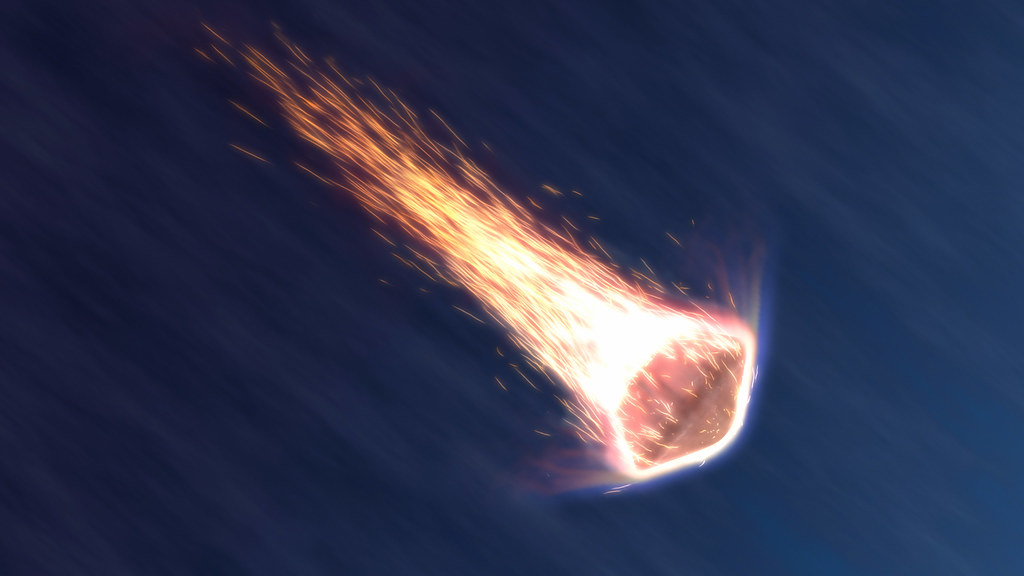
Symposium Speakers
Meet the speakers of the 2025 North Carolina Space Symposium!
Plenary Speaker
Kimberly M. Brush
- Chief of Staff, NASA Langley Research Center
Dr. Kimberly Brush, Chief of Staff at NASA Langley Research Center, ensures alignment of messaging, change management, and team-building initiatives with Center strategy while supporting the Director. Starting as a special education teacher in 1996, she joined Langley in 2012 as a Co-op Intern, with her research on internships forming the basis of her dissertation. She later served as STEM Engagement Coordinator and Director of STEM Engagement, championing DEIA initiatives, creating education programs, and fostering community in hybrid environments. Named Chief of Staff in 2023, Dr. Brush remains dedicated to workforce development and is pursuing certification in Executive Coaching.
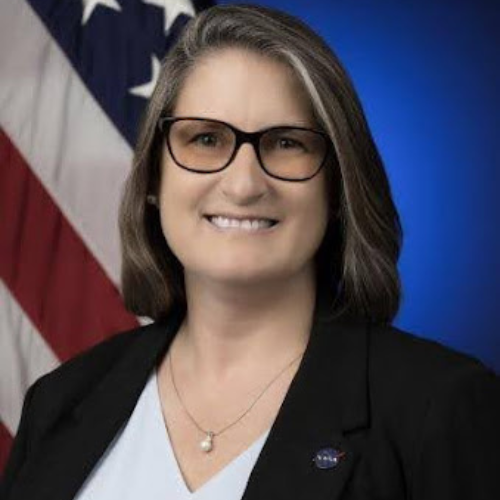
Luncheon Speaker
Eileen K. Stansbery
- Chief Scientist, NASA Johnson Space Center
- Chief, Astromaterials Research and Exploration Science Division
Dr. Eileen K. Stansbery, Chief Scientist at NASA’s Johnson Space Center (JSC) and Chief of the Astromaterials Research and Exploration Science (ARES) Division, oversees a team of over 300 employees managing NASA’s extraterrestrial samples, the Orbital Debris Program, and planetary surface research. She earned her doctorate in Space Physics from Rice University and a bachelor’s in mathematics and physics from Houston Baptist University. Previously, she served as JSC Deputy Director for Exploration Integration and Science and as NASA’s Acting Deputy Chief Scientist, advising senior leadership and the Executive Office of the President’s Office of Science and Technology Policy. A critical contributor to the Genesis Mission, she led efforts to recover scientific data after a sample capsule crash. Recognized with numerous honors, including NASA’s Distinguished Service Medal and the AAS Carl Sagan Memorial Award, Dr. Stansbery drives advancements in human and robotic exploration of the Moon, Mars, and beyond.
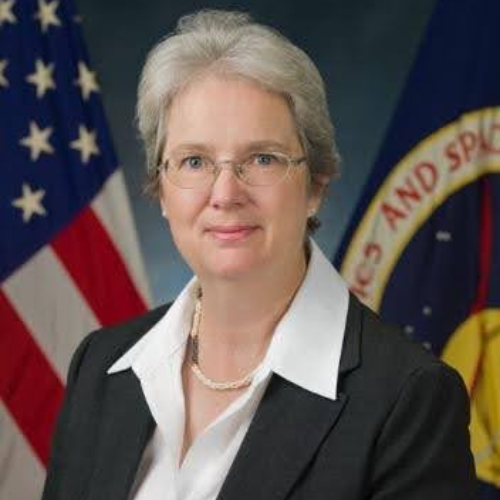
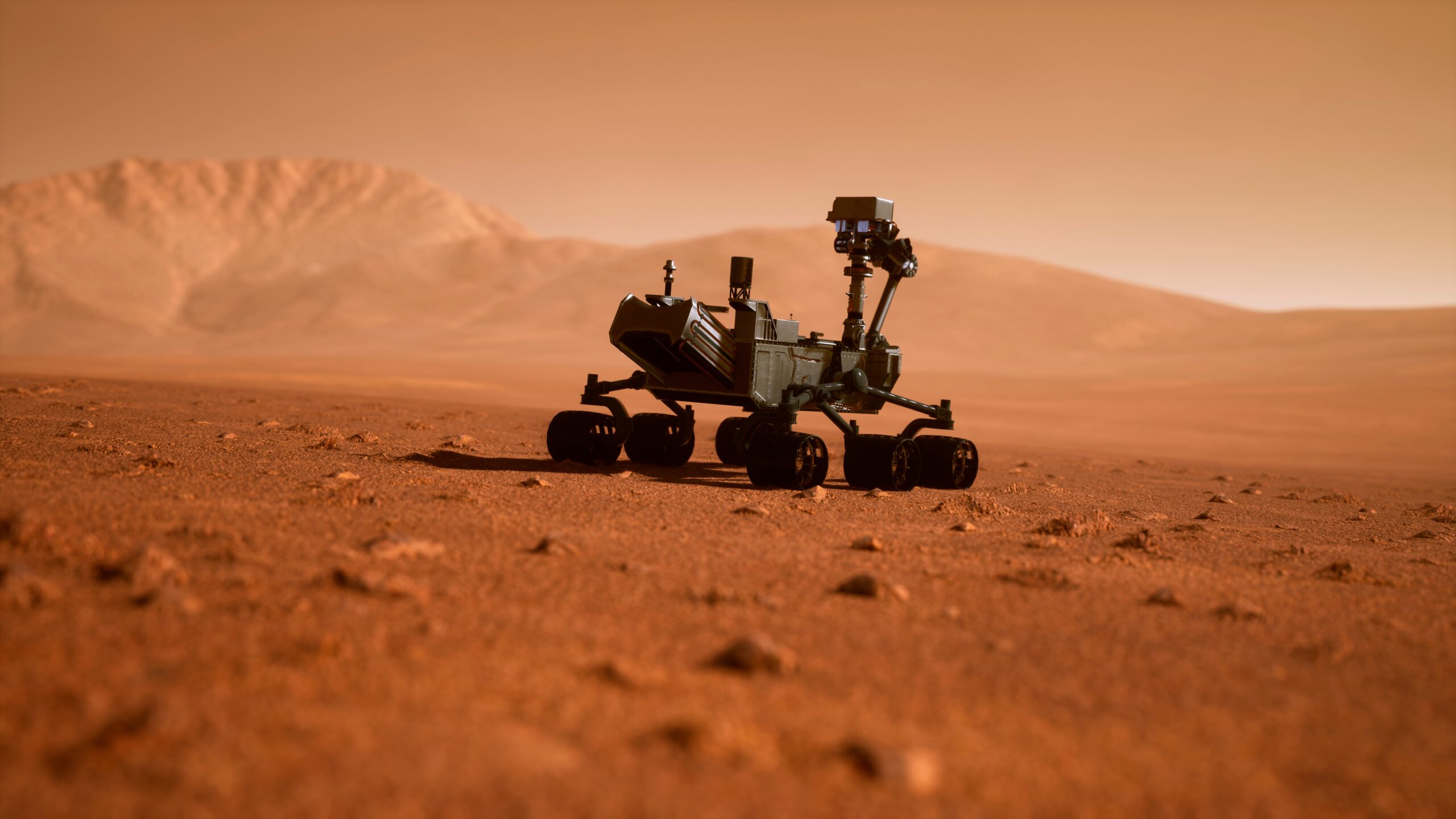
Industry Connections
NC Industry Contributions to the Space Economy
James Ainsworth
- Vice President of Engineering Services, Collier Aerospace – HyperX Software, Raleigh, NC
James Ainsworth is the Vice President of Engineering Services for Collier Aerospace – HyperX Software. He earned his B.S. in aerospace engineering from North Carolina State University and received an NC Space Grant research scholarship during his studies there.
Since joining the company in 2009, Ainsworth has focused his structural engineering career on performing analytical trade studies and has developed analytical solutions for many aerospace and space launch companies, including NASA, Blue Origin, SpaceX, TSC, Bell, Bombardier, Boeing, Gulfstream, Embraer and many others. Ainsworth has authored and presented several technical papers and provided many training courses focused on structural engineering for metal and composite airframes. In 2013, Ainsworth received the NASA NESC Engineering Excellence Award for his work on the Orion crew capsule.
Since 2016, Ainsworth has managed a team of engineers that perform certification analysis on aircraft and spacecraft structures. In 2021, Collier Aerospace opened an engineering office in Raleigh, North Carolina, for which Ainsworth is the managing director.
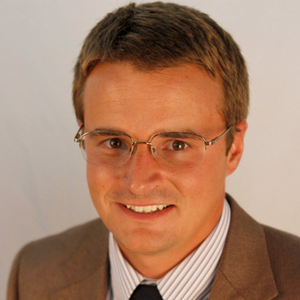
Jeff Mobley
- Senior Chief Engineer for Spacecraft Systems, Sierra Space
Jeff Mobley is the Sr. Chief Engineer for Spacecraft Systems at Sierra Space where he provides technical oversight on strategy, proposals, design execution, milestone reviews, and failure resolution. He has 31 years of experience related to design, development, fabrication and testing of electro-mechanical systems, including 26 years in the Space industry.
He received a BS in Mechanical Engineering from North Carolina State University and in 2021 was inducted into the NCSU Mechanical and Aerospace Engineering Hall of Fame. He has previously served on the technical advisory board of the American Gear Manufacturers Association (AGMA) Aerospace Gearing Committee as a Space Industry gearing expert.
His projects have included mechanisms in support of space programs such as Mars Perseverance Rover, Mars Curiosity Rover, Global Precipitation Measurement, Lunar Reconnaissance Orbiter, Solar Dynamics Observatory, Mars Phoenix Lander, the Sierra Space Dream Chaser™ spaceplane, and multiple Defense satellites. These custom designed products perform functions such as antenna pointing, solar array positioning, robotic arm articulation, flight surface control, wing folding, camera pointing, and descent braking.
Jeff has authored and presented multiple technical papers for the Aerospace Mechanisms Symposium. He is a co-author on U.S. Patent, #6667564 “Mechanically-Commutated DC Motor”.
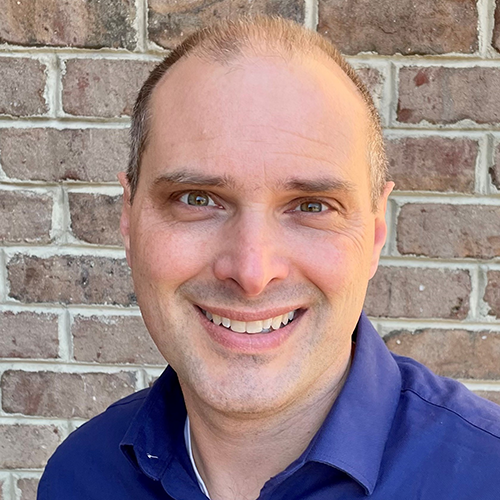
Jamie Coker
- Director of Programs – Sierra Space, Durham, NC
Jamie Coker has worked for Sierra Space for 17 years as a Program Manager and Director of Programs, managing the Motion Systems Technology program portfolio. Sierra Space primary responsibilities include: directing all phases of programs from inception through completion; managing cost, schedule and technical performance of programs; serving as the primary interface for customers; developing new business; and supervising the Program Management Office (PMO) team.
Jamie has 27 years of experience in program management including 10 years serving in the US Air Force as a Developmental Engineer and Contracting Officer Technical Representative (COTR). While in the Air Force, Jamie was assigned to the National Reconnaissance Office (NRO), Communications Technology Division, serving as Deputy Division Chief and COTR for a portfolio of communications R&D projects. Previous to that, Jamie was assigned to the Air Force Research Laboratory (AFRL), Sensors Directorate, serving as team leader, managing a portfolio of Precision Navigation & Timing (PNT) programs including GPS anti-jam, precision timing, and emitter geolocation. Jamie holds an MSEE degree from the Air Force Institute of Technology (AFIT), a BSEE degree from North Carolina State University, and an MBA from Oklahoma City University.
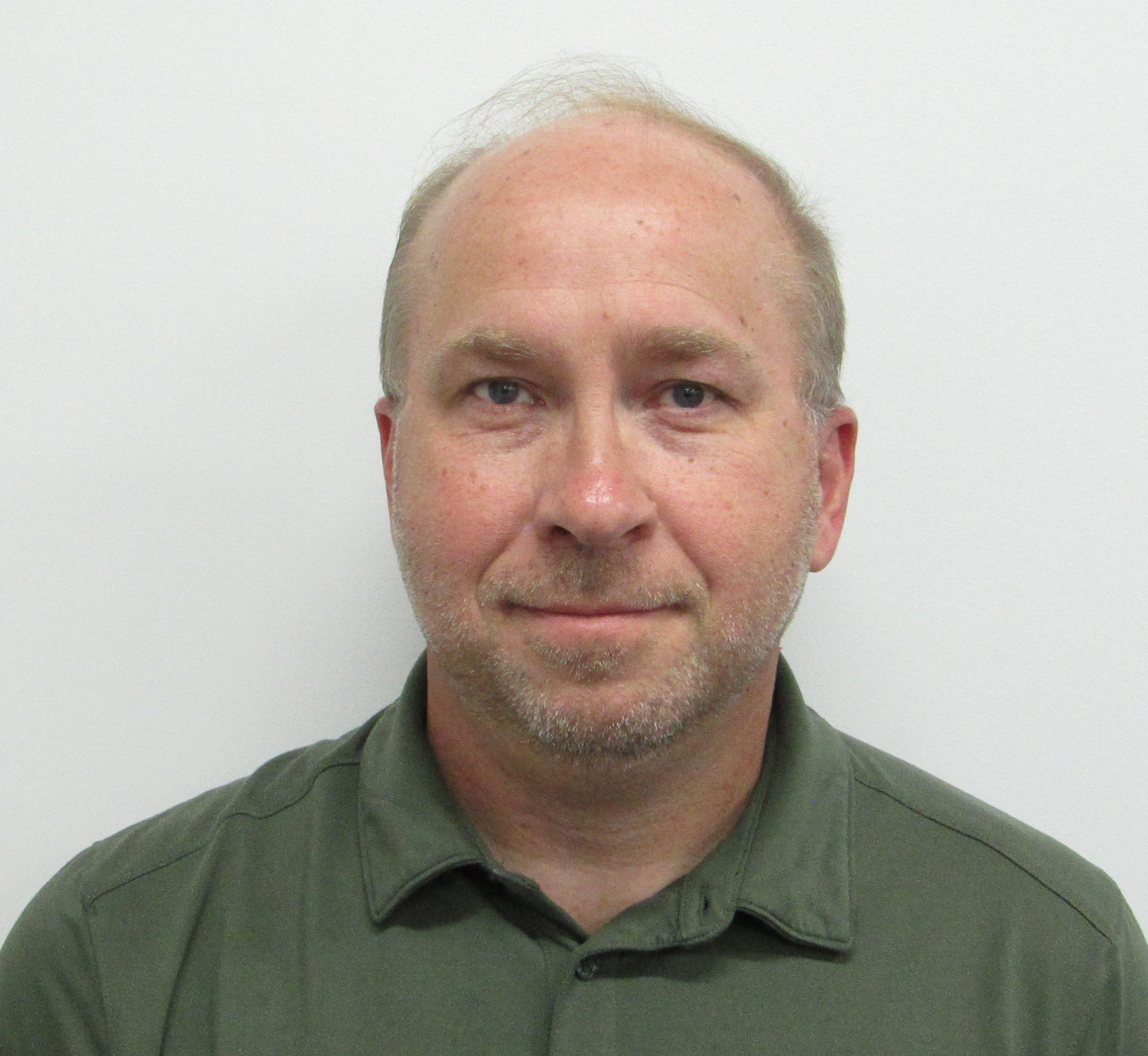
Bridget Simmons
- Human Resources – Machine Specialties, Inc., Whitsett, NC
Bridget Simmons graduated from High Point University, where she majored in Human Relations. Bridget currently serves at Machine Specialties, LLC’s as an HR Leader. In this role she is responsible for recruiting, hiring and retaining top tier talent necessary for MSI to support its customers requirements. MSI is a precision manufacturing firm, in business since 1969, serving the Aerospace, Defense and Space industries. With its multi-site operation, it provides turn-key solutions for its partners complex requirements. MSI is fortunate to be strategic partners with key Aerospace & Space OEM’s and support on many successful platforms that are actively flying around the world.
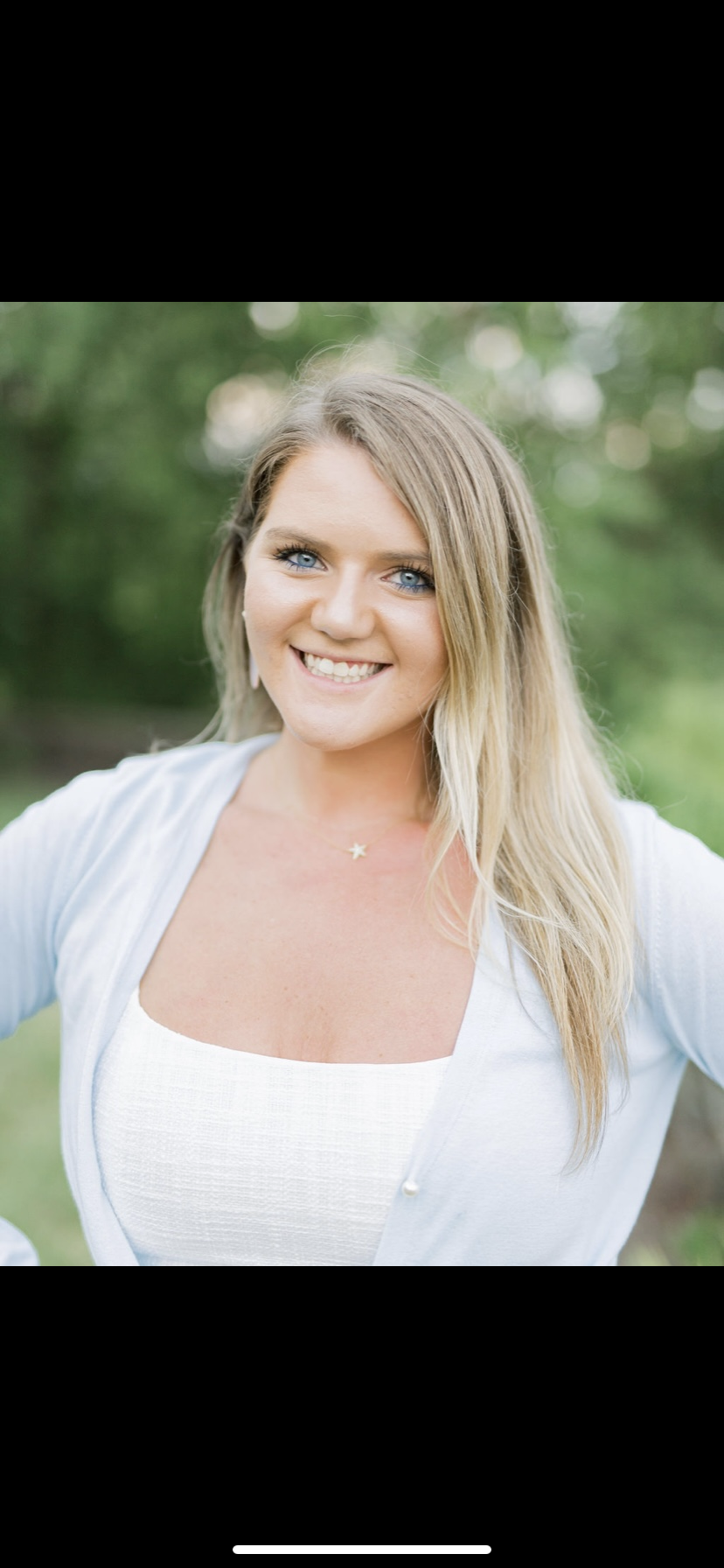
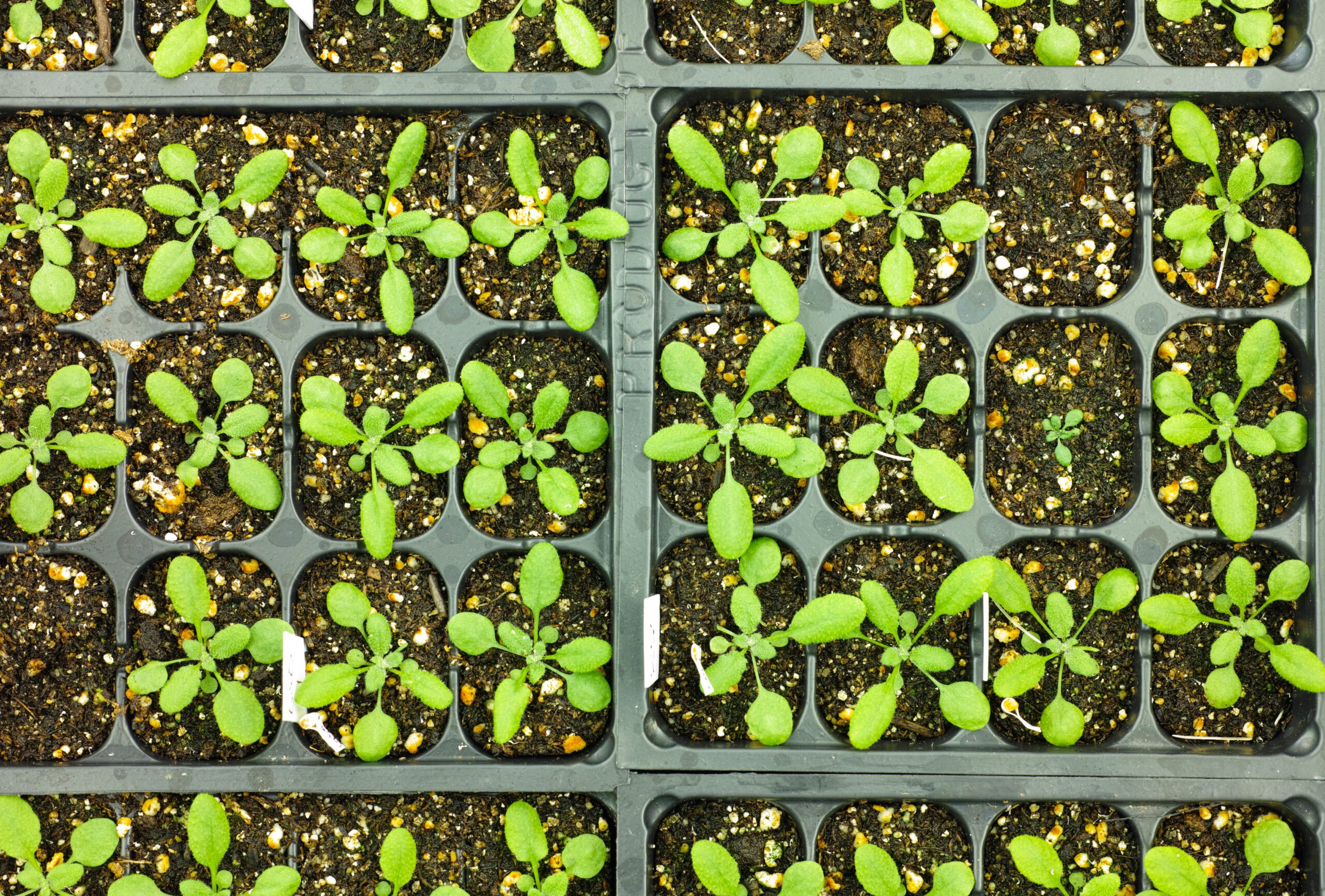
Mentorship Spotlight
Growing Through Shared Discovery: The Importance of Undergraduate Research in Space Biology
Dr. Rafael Loureiro
Rafael Loureiro is a Botany and Plant Physiology Associate Professor at Winston-Salem State University (WSSU), specializing in plant stress physiology. He received his Master’s and Ph.D. from Brazil’s National School of Tropical Botany, where he gained extensive experience in controlled environment crop science and plant ecophysiology. Dr. Loureiro’s research currently focuses on analyzing phytohormonal data and microbial-plant interactions to reduce stress and assess the viability of in situ resources for growing crops on the Moon and Mars. Dr. Loureiro has also established the first space act agreement between WSSU and NASA’s crop production team at Kennedy Space Center. Through this agreement, students from MSI/HBCU have the opportunity to collaborate with NASA scientists and participate in NASA research.
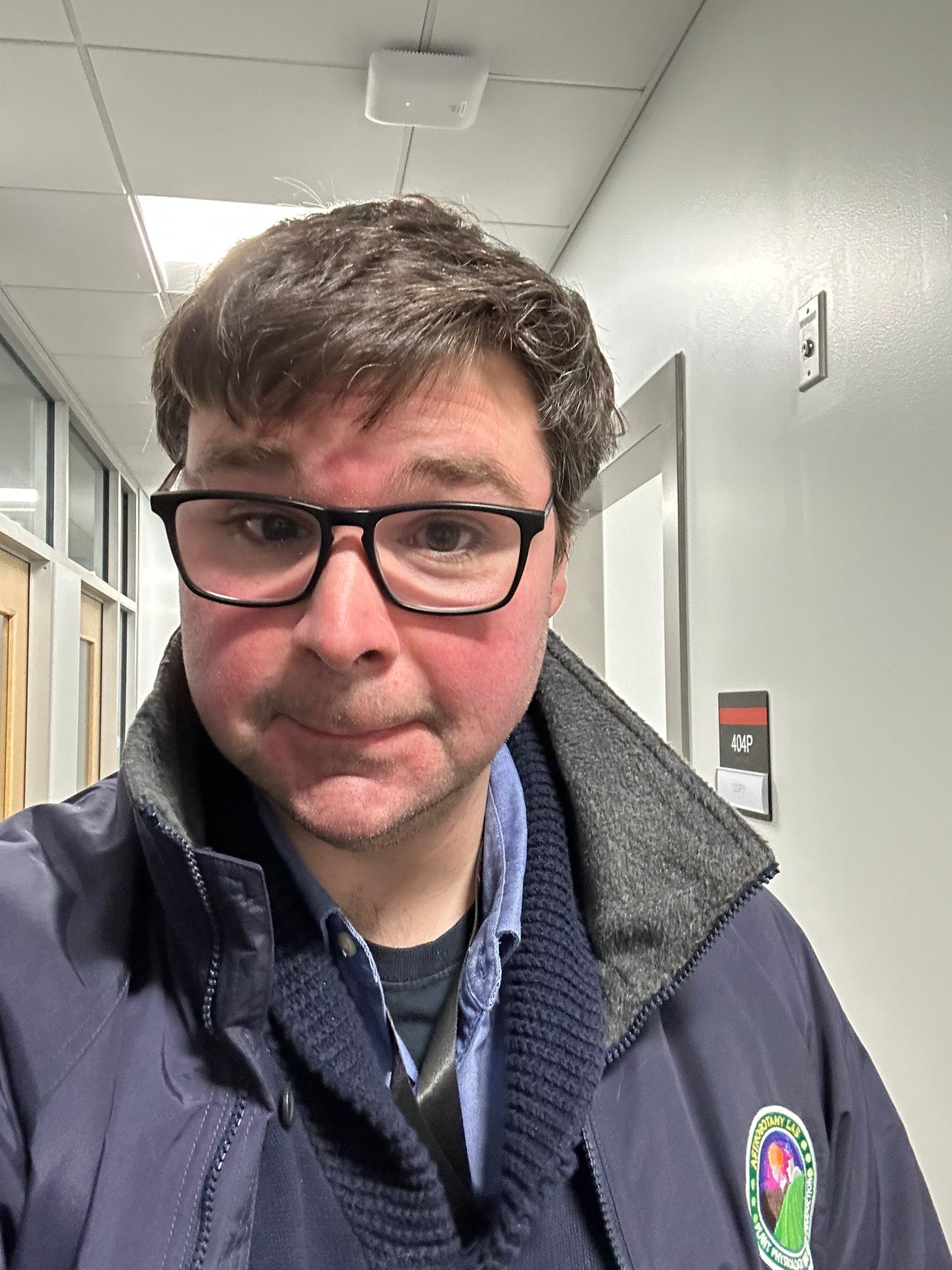
A’nya Buckner
A’nya Buckner is a Biology major and a Chemistry minor at Winston-Salem State University. She was awarded a NC Space Grant STEM Bridge scholar (2023-2024) and an Undergraduate Research Scholar (2024-2025). The core of her research involves comparing the growth, stress responses, and phytohormonal balances of wild-type Arabidopsis alongside iron-resistant and aluminum-resistant mutants when grown in lunar and Martian regolith simulants against the control of regular soil. A’nya is pursuing a career as a physician and will continue to work as an emergency medical technician during her gap year in medical school.
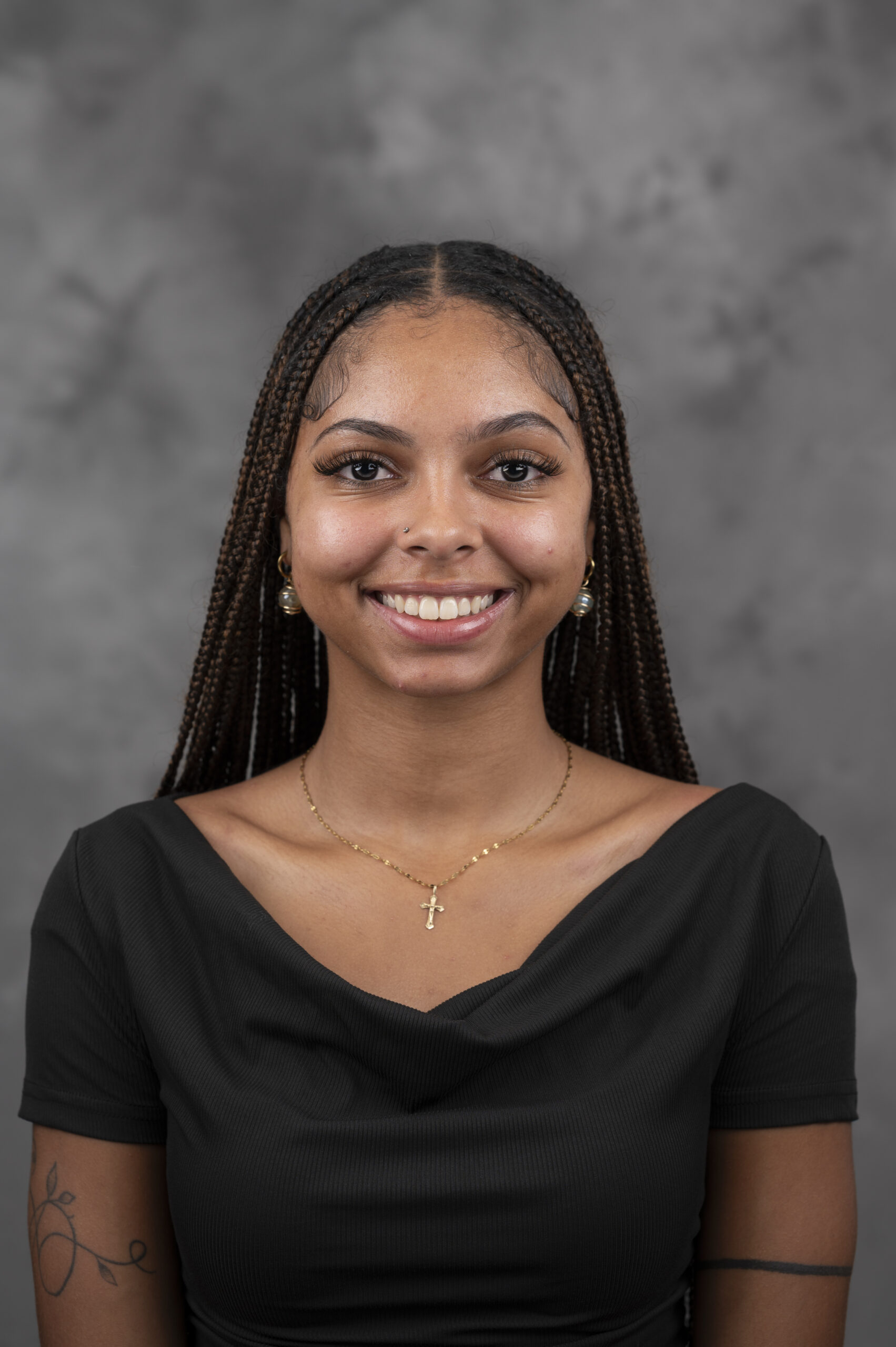
Sarah Lang
Sarah Lang is a Biology major and a Psychology and Criminal Justice minor at Winston-Salem State University. She was awarded a NC Space Grant STEM Bridge Scholarship (2022-2023) and an Undergraduate Research Scholarship (2023-2024). Her research focuses on identifying the genetic pathways responsible for the root architecture of crops grown in Lunar regolith to increase crop yield and reduce water consumption in situ. Sarah will continue her academic work as a Master’s student at the Florida Institute of Technology’s Cell and Molecular Biology program under Dr. Andrew Palmer.
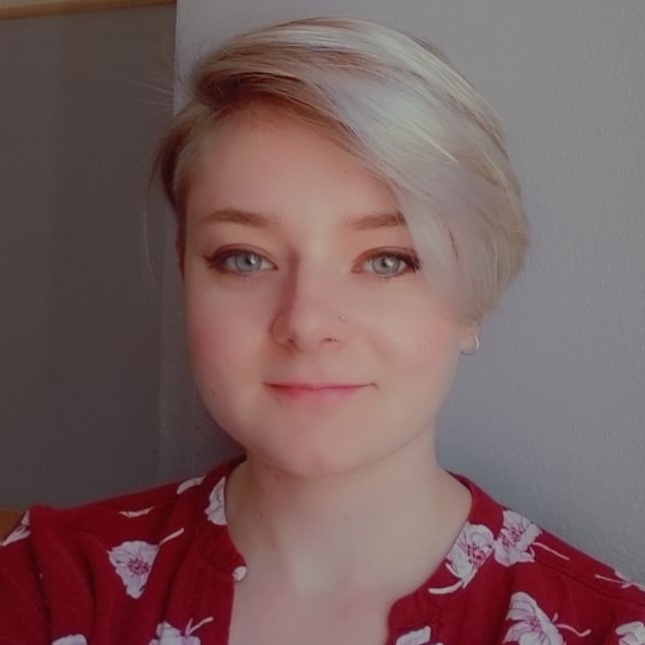
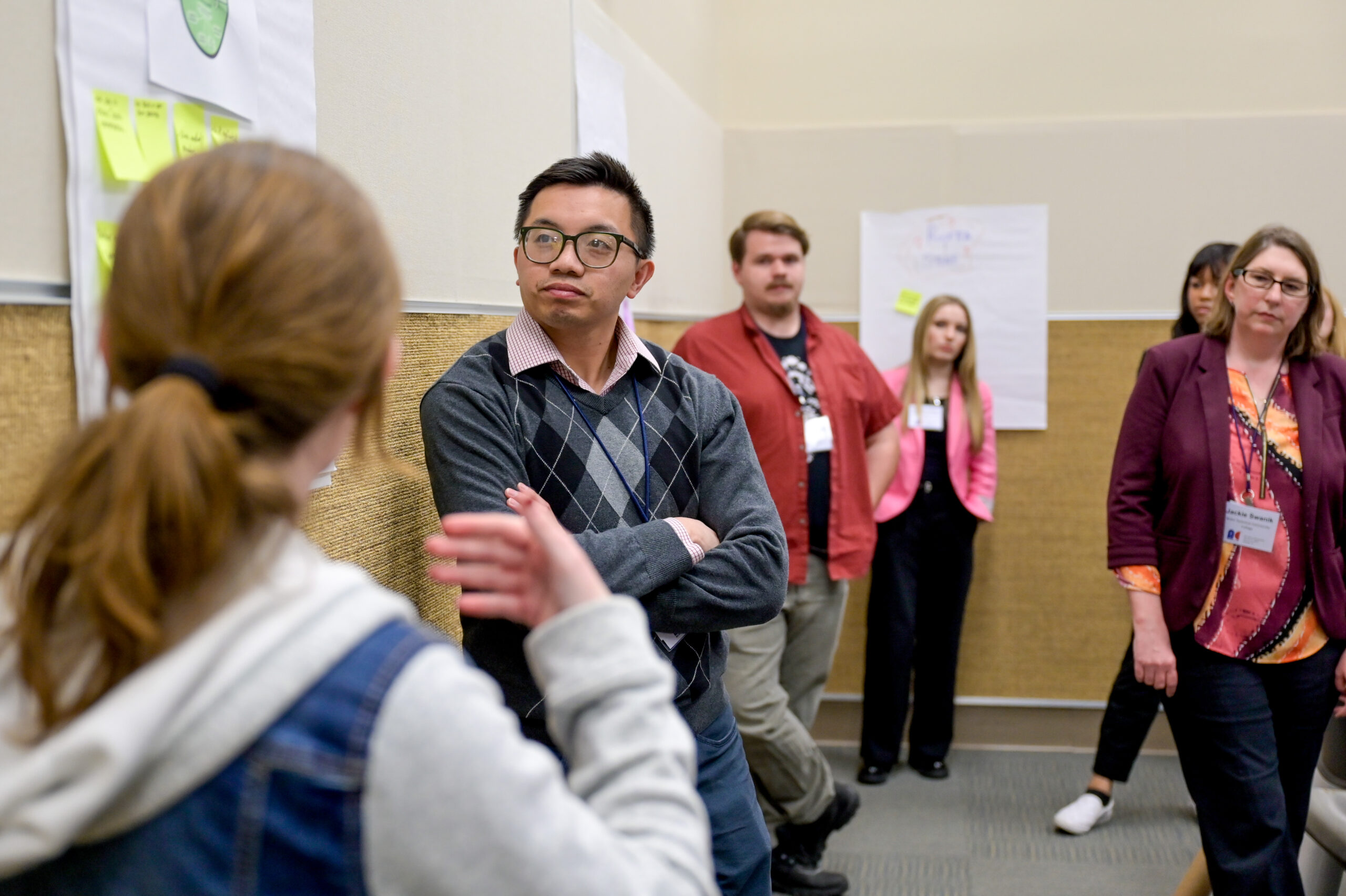
Student Workshop
Effective Communications in the STEM Workforce
Michael Rice
- Senior Technical Writer, KBR
Michael Rice was born and raised in North Carolina. He has worked in satellite mission operations for over 20 years. Michael received his undergraduate degree in Chemistry from the University of North Carolina at Chapel Hill, and later earned a M.S. degree in Technology Systems from East Carolina University. He began his career as a Space Systems officer in the U.S. Air Force, working with the Defense Meteorological Satellite Program (DMSP) at Offutt Air Force Base in Omaha, Nebraska. After a four-year stint in the military, he became a contractor at the NASA Goddard Space Flight Center (GSFC) in Greenbelt, MD.
Michael has worked with a myriad of different unmanned space programs, including the Relay Mirror Experiment (RME), NASA Small Explorers Program (SMEX), Hubble Space Telescope (HST), Landsat-7, and the Lunar Reconnaissance Orbiter (LRO), to name a few. He has worked in all phases of the spacecraft mission lifecycle, from pre-launch requirements development, integration and test (I&T), Launch and Early Orbit (LEO), and normal mission operations. Currently, Michael works as a contractor for KBR in their Science & Space Business Development unit, as a senior technical writer.
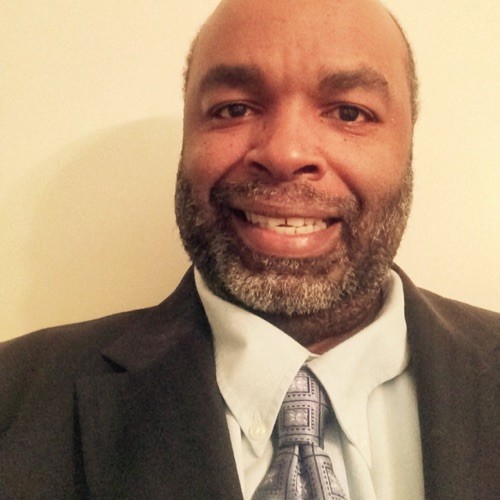
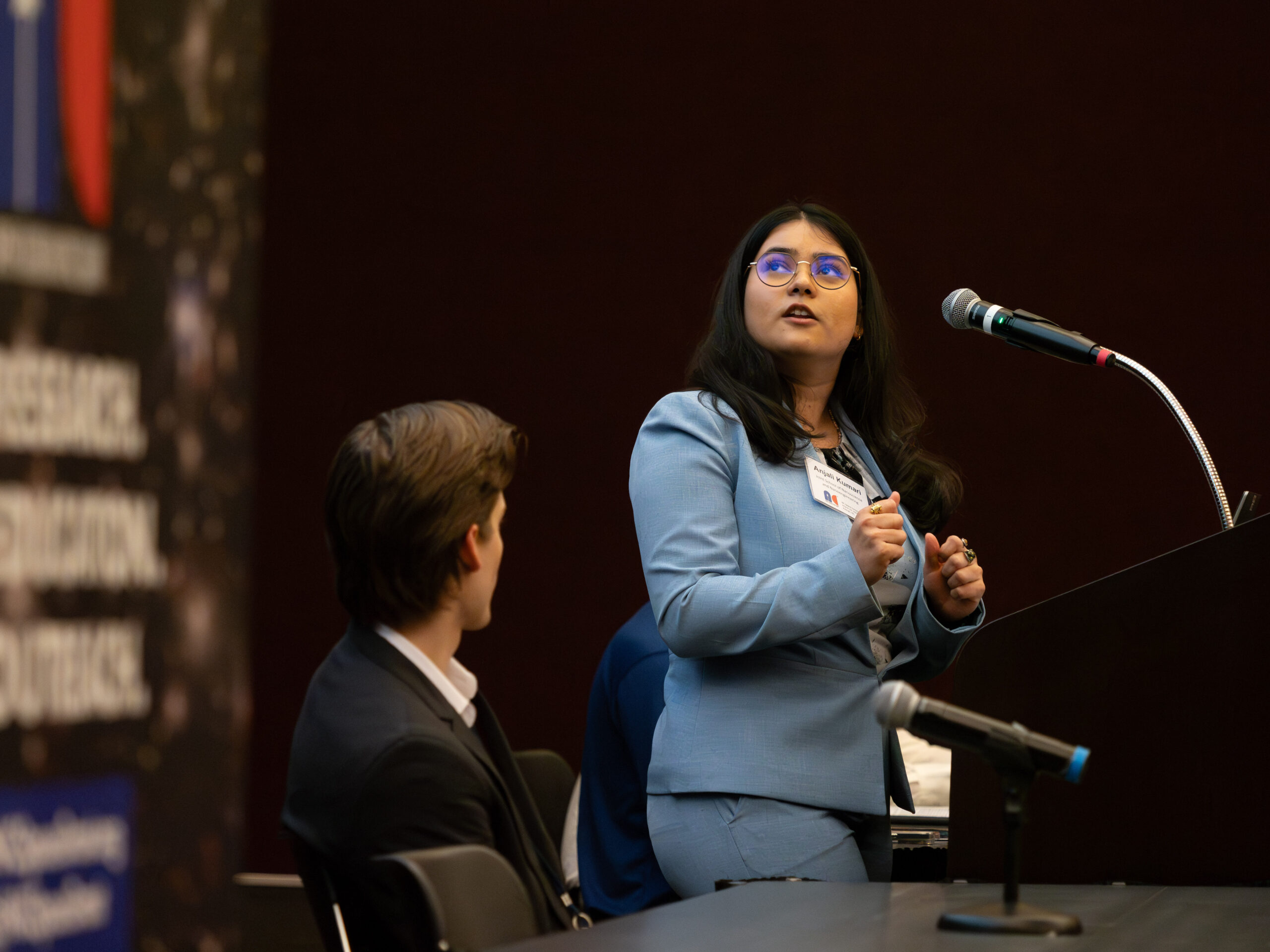
Student Lightning Talk Presenters
Session 1
Moderator: Aurora Toennisson
- Ph.D. Candidate, North Carolina State University
- North Carolina Space Grant Alumni and Advisory Board Member
Aurora’s dissertation research focuses on plant adaptation to spaceflight. In support of this research, she received two NC Space Grant fellowships for projects focused on plant response to simulated microgravity and the effects of spaceflight-isolated microbes on plant growth. As part of her PhD, she has gained several years experience as a teaching assistant for general botany and plant molecular biology lab classes. Previously, Aurora received a BS in Biology with a focus on Ecology and Evolutionary Biology and a MS in Entomology from the University of Tennessee. Her MS research focused on the community ecology of urban ants and the nesting behavior of the pest ant species Tapinoma sessile. Prior to returning to grad school for her PhD, she worked for a couple years on an organic farm and several more as a research associate in an agricultural entomology lab. In the latter role, she supported research on pests and beneficial insects associated with North Carolina specialty crops.
Aurora is an avid supporter of science communication and outreach. She blogs about entomology and gardening at The Biologists Garden and space biology at Sprouts in Space. She coordinates outreach events for the North Carolina Entomological Society, the Orange County Radio Amateurs, and (from 2021-2024) the NCSU Biology Maker Group. Her volunteer work as a middle school First Lego League coach is what originally inspired her to pursue space biology. Upon graduating, she hopes to find work where she can do meaningful research related to plants and microbes, continue formal or informal science teaching, and remain engaged with the space biology community.
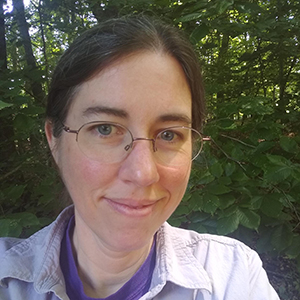
Alden Contreras
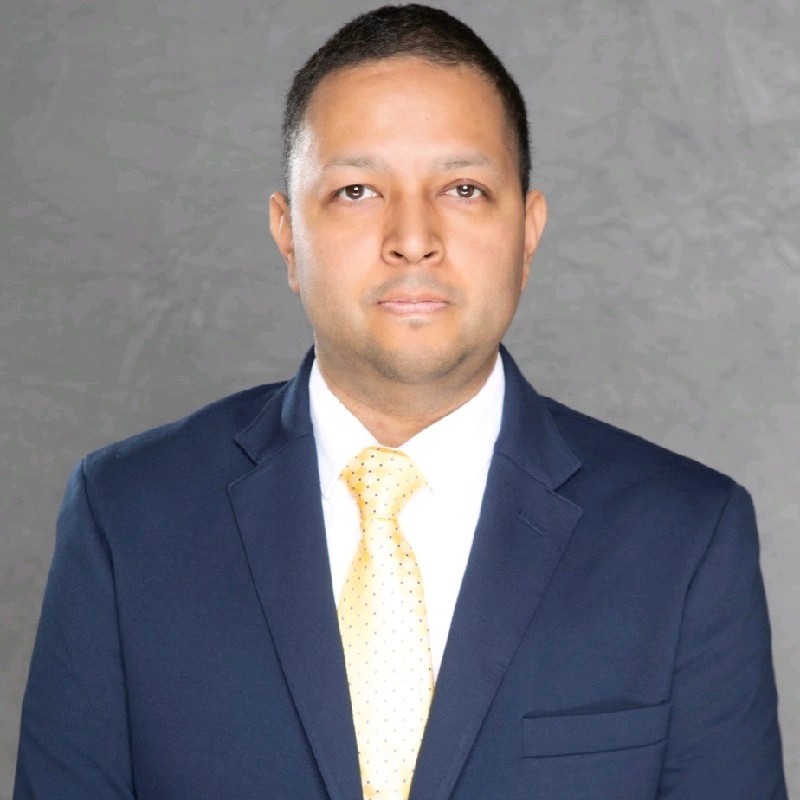
2024-2025 NC Space Grant Graduate Research Fellow
NC A&T State University
Graduate – Ph.D., Nanoengineering
Alden Contreras, a Nanoengineering PhD student at North Carolina A&T State University, researches aerospace materials at the Joint School of Nanoscience and
Nanoengineering. With a background in chemical engineering, he integrates modeling and simulation into his work. He has gained research and industry experience through internships at The Aerospace Corporation and Los Alamos National Laboratory. An NC Space Grant Graduate Research Fellowship Program recipient, he is driven by problem-solving, mentorship, and advancing STEM education.
Duncan Maclean
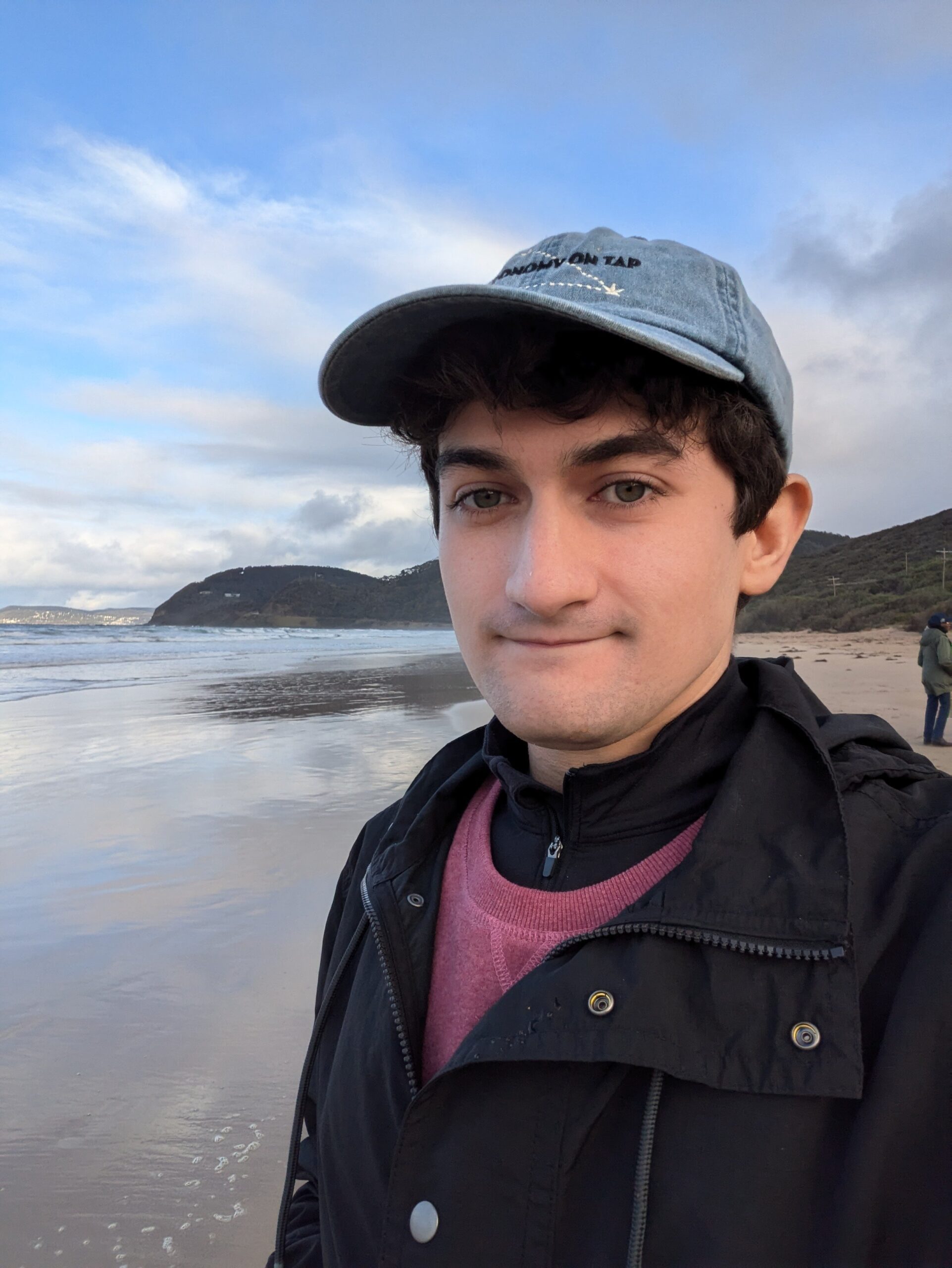
2024-2025 NC Space Grant Graduate Research Fellow
The University of North Carolina at Chapel Hill
Graduate – Ph.D., Astrophysics
Duncan Maclean is a doctoral student at the University of North Carolina at Chapel Hill. He was awarded the NC Space Grant Graduate Research Fellowship for the 2024-25 year. His research involves using computational methods to model binary black holes and other stellar systems which produce gravitational wave (GW) signals. With assistance from the NCSG Research Fellowship, he works to identify constrains in the mass and formation process of black holes based on sensitive nuclear reactions in the cores of massive stars. Maclean earned his bachelor’s degree in Physics from Roanoke College in 2020 and works as a research assistant in UNC Chapel Hill’s Dynamics Lab.
Megan Geesin
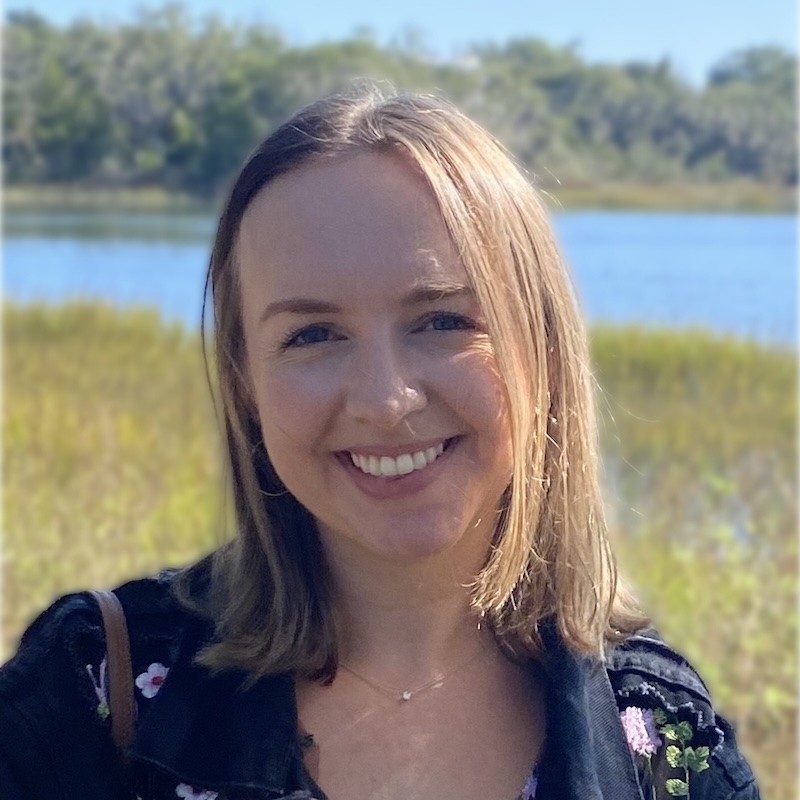
2024-2025 NC Sea/Space Grant Graduate Research Fellow
East Carolina University
Graduate – Ph.D., Integrated Coastal Sciences
Megan Geesin is a Ph.D. candidate in the Integrated Coastal Sciences program at East Carolina University. She was awarded the NC Sea Grant – Space Grant joint fellowship in 2024. Megan uses drones and structure-from-motion techniques to examine changes in elevation and vegetation around living shorelines. This information allows her to assess the coastal protection properties provided by different living shoreline designs.
L. Brooke Turner
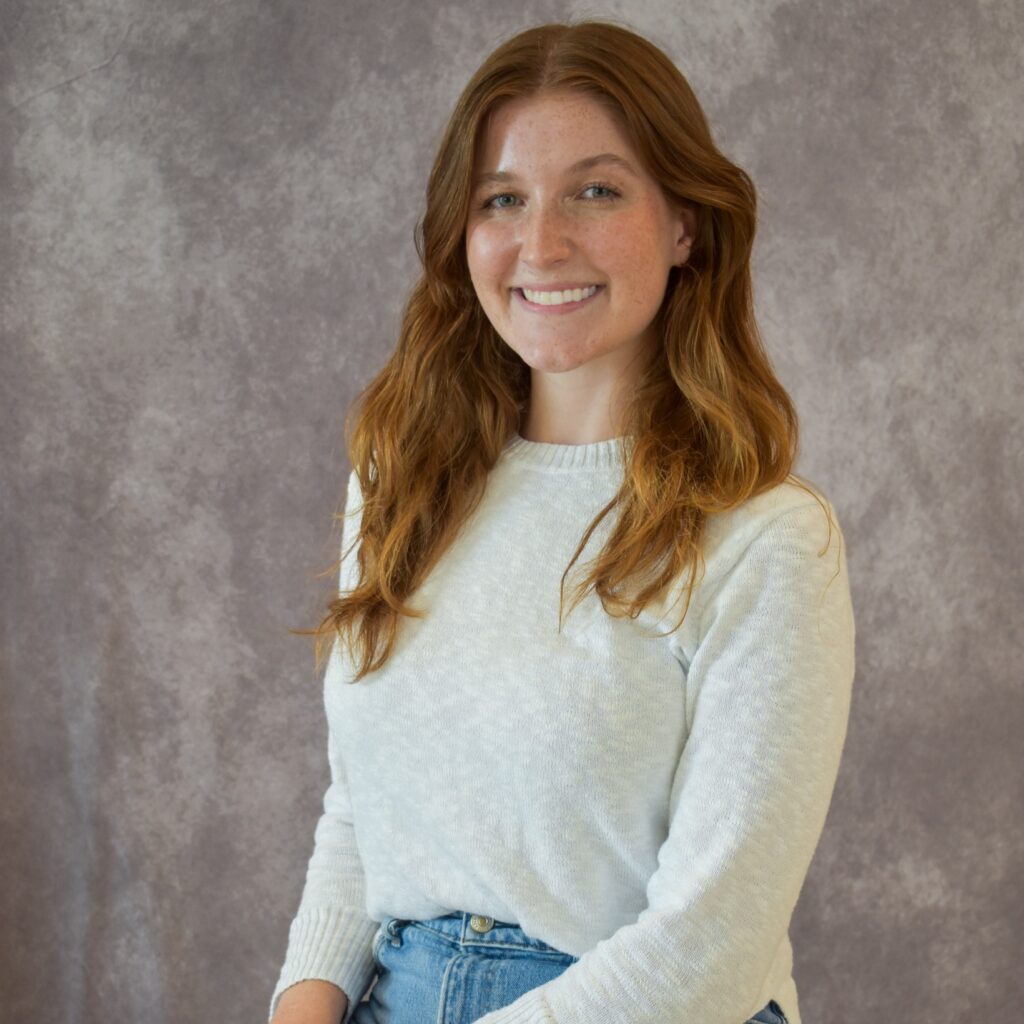
NASA Internship Awards at NASA Goddard Space Flight Center (Summer 2023 and 2024)
North Carolina State University
Undergraduate – Senior, Aerospace Engineering and Political Science
L. Brooke Turner is an undergraduate student at North Carolina State University who received a NASA Internship Award at Goddard Space Flight Center, with support through 2023-24 and 2024-25 NC Space Grant internship funding. She has interned with both the thermal branch and the optics branch and continues to work with SURA/CRESST II at Goddard to analyze and design ultra-stable testbeds for the Habitable Worlds Observatory.
Morgan Heckman
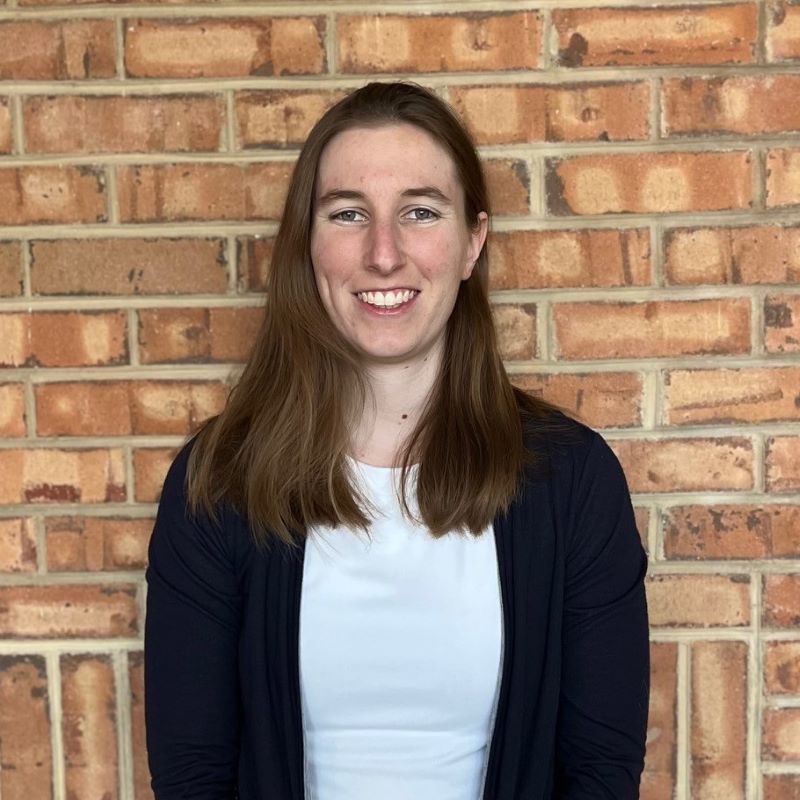
2024-2025 NC Sea/Space Grant Graduate Research Fellow
Duke University
Graduate – Ph.D., Mechanical Engineering and Materials Science
Morgan Heckman is a doctoral student at Duke University who was awarded an NC Space Grant Graduate Research Fellowship for the 2024-25 year. She conducted research focused on patterning bacterial growth with blue light for the purpose of patterning biomaterial deposition.
Session 2
Moderator: Olivia Scott
- Aerospace Structural Engineer, Collina Aerospace
- North Carolina Space Grant Alumni and Advisory Board Member
Olivia Scott is an Aerospace Structural Engineer for Collier Aerospace. She earned her B.S. in Aerospace Engineering from North Carolina State University and received a NC Space Grant sponsored internship during her collegiate career.
Olivia joined the company in 2022 as a NC Space Grant career intern, where she began her structural engineering career focusing on traditional analytical structural analysis and working with the commercial space and military aviation industries. Following the internship, she transitioned into a full-time position in 2023, further deepening her expertise in evaluating and optimizing aerospace structures. With a deep understanding of the industry’s technical challenges and practical applications, Olivia brings valuable insight to projects requiring rigorous evaluation of structural integrity and performance.
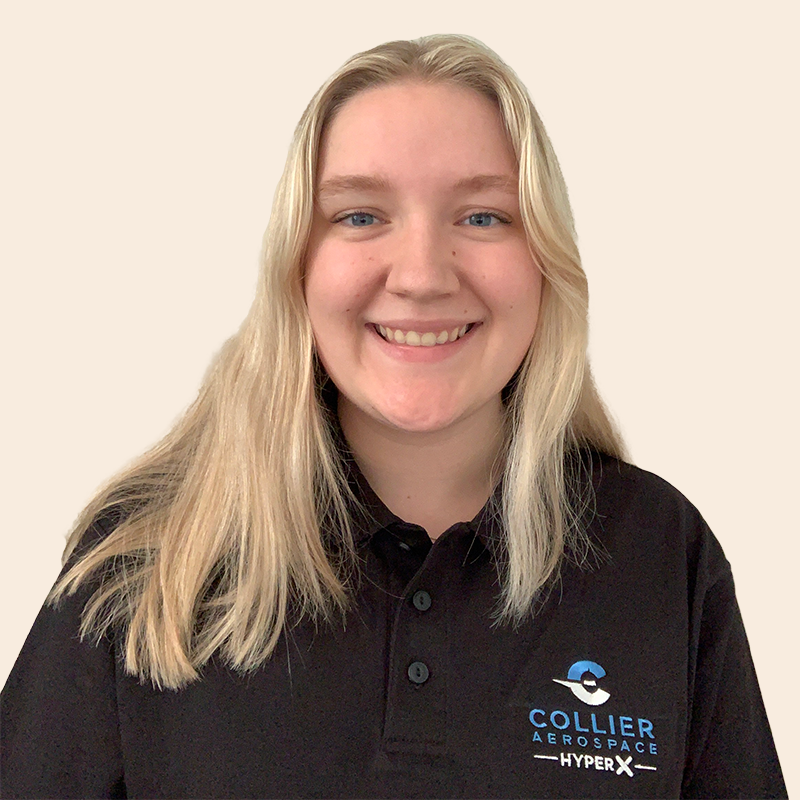
Patrick Haughey
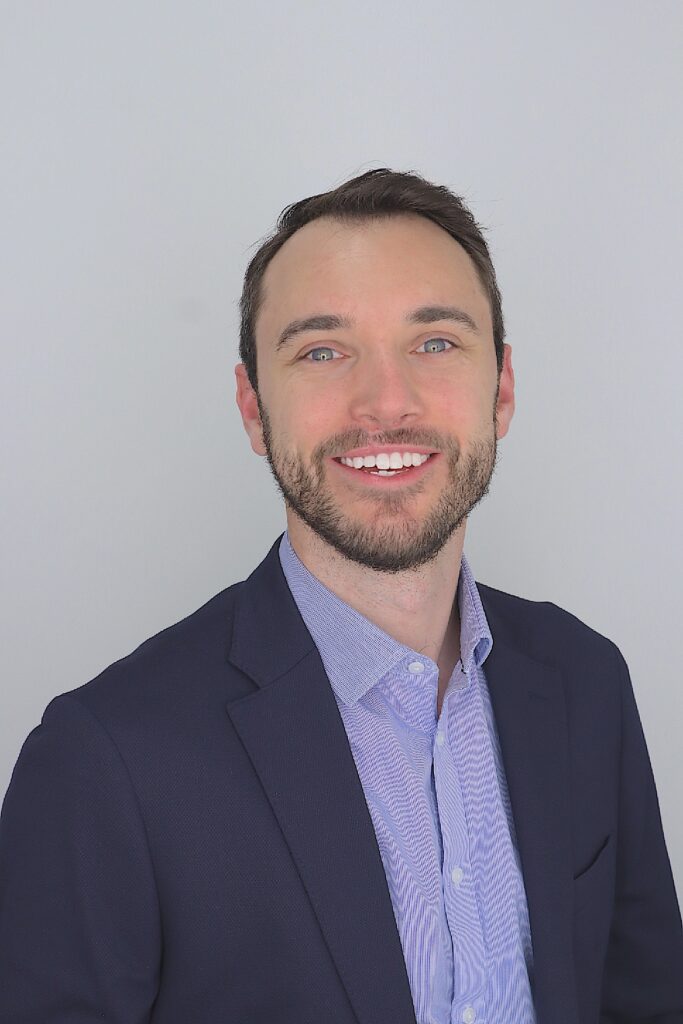
2024-2025 NC Space Grant Graduate Research Fellow
North Carolina State University
Graduate – Ph.D., Applied Mathematics
Patrick M. Haughey Jr. is a doctoral student in Applied Mathematics at North Carolina State University and a 2024–2025 NC Space Grant Graduate Research Fellow. His research focuses on transionospheric synthetic aperture radar (SAR) imaging, where he develops autofocus algorithms to mitigate ionospheric distortions that degrade satellite images. His work integrates atmospheric modeling, numerical optimization, and signal processing techniques to improve image reconstruction accuracy for aerospace and defense applications. Haughey is eager to apply his expertise at the intersection of theoretical mathematics and engineering to develop practical solutions for space imaging applications.
Brian Cook
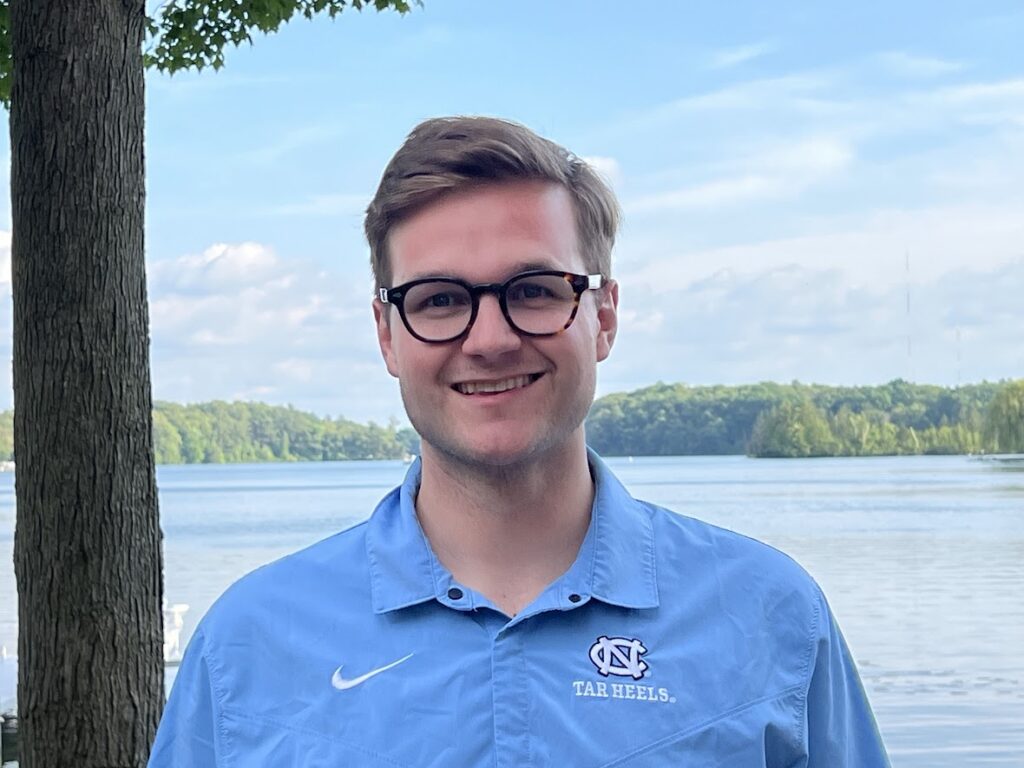
2024-2025 NC Space Grant Graduate Research Fellow
The University of North Carolina at Chapel Hill
Graduate – Ph.D., Astrophysics
Brian Cook is a doctoral student in the Department of Physics and Astronomy at the University of North Carolina at Chapel Hill and an NC Space Grant Graduate Research Fellow during the 2024-25 cycle. He led the development of a new Monte Carlo N-body code designed to simulate globular clusters (GCs) and conducted research on how to produce realistic models of tidal debris from GC progenitors.
Caleb Knight
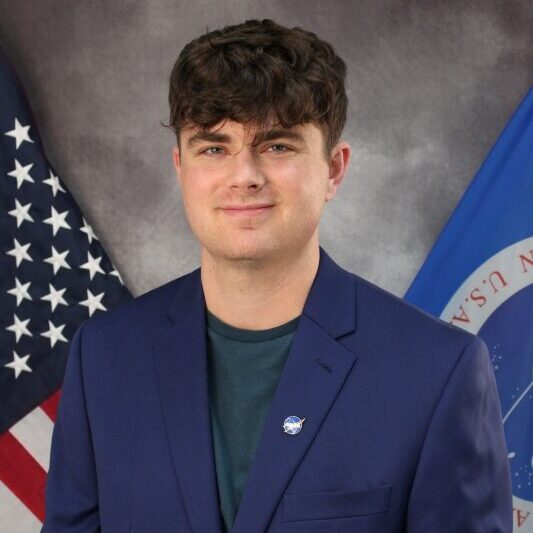
NASA Internship Award at NASA Kennedy Space Center (Summer 2024)
Lenoir-Rhyne University (Graduated May 2024)
The University of Alabama at Birmingham
Graduate – Masters, Physics
Caleb Knight is a Graduate Research Assistant and M.S. candidate in Physics at the University of Alabama at Birmingham (UAB). His research focuses on High-Entropy Alloys under the guidance of Dr. Yogesh Vohra. He holds a Bachelor of Science in Engineering Physics from Lenoir-Rhyne University in Hickory, North Carolina.
Caleb has a strong background in rocketry, having competed in NASA’s Student Launch Initiative (SLI) in 2020 with West Iredell High School’s rocketry club and participated in the Spaceport America Cup for four years as a member of Lenoir-Rhyne University’s rocketry team. Most recently, NC Space Grant supported his Summer 2024 internship at NASA Kennedy Space Center, where he worked as a Future Systems Intern under Chad Brown.
Samantha Holmes
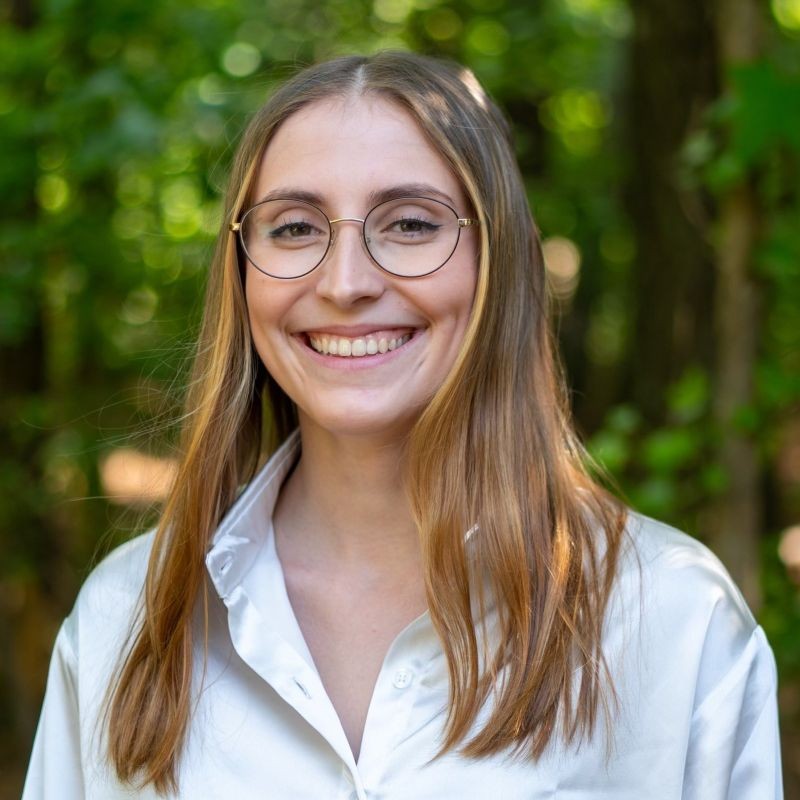
2024-2025 NC Space Grant Graduate Research Fellow
Duke University
Graduate – Ph.D., Electrical and Computer Engineering
Samantha Holmes is a doctoral student at Duke University who was awarded an NC Space Grant Graduate Research Fellowship for the 2024-25 year. She conducts research regarding imaging of transition metal dichalcogenide transistors under active bias. This is her second NC Space Grant Graduate Research Fellowship involving 2-D material transistor design and performance research.
Peggy Mullin
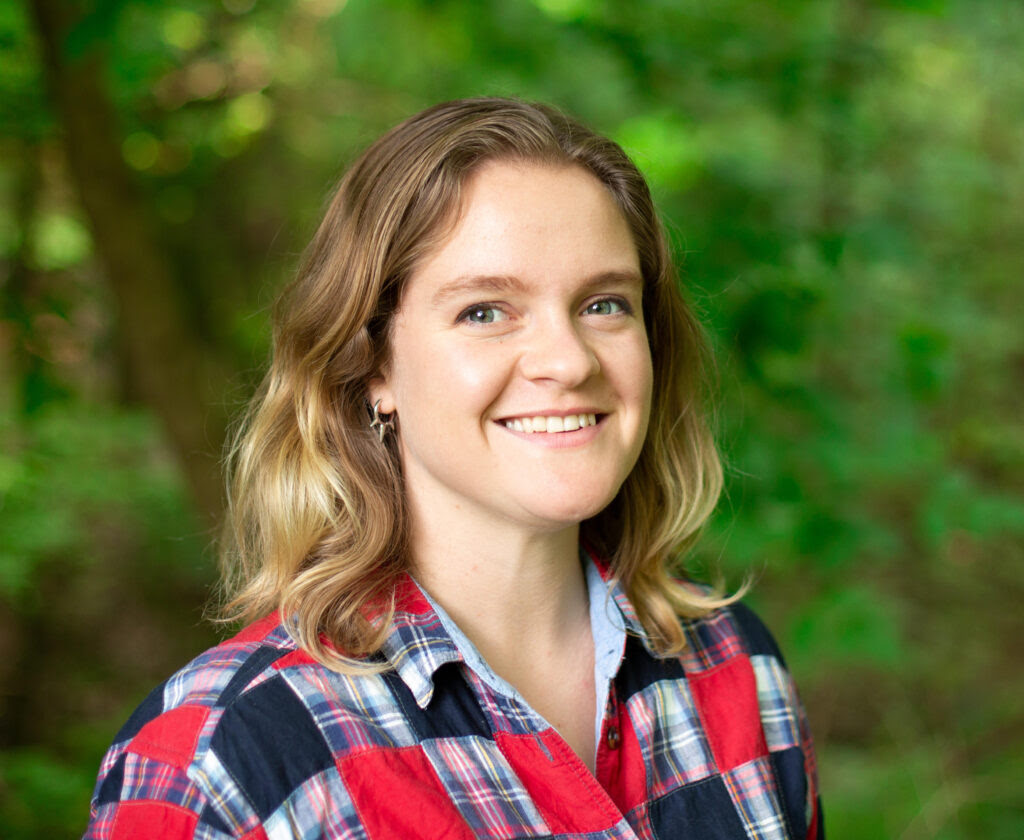
2024-2025 NC Sea/Space Grant Graduate Research Fellow
The University of North Carolina at Chapel Hill
Graduate – Masters, Ecology
Peggy Mullin is a Master’s student in Ecology at UNC Chapel Hill studying the use of remote sensing technology to help manage coastal resources. She has a background in ecological research that has taken her across the world, and extensive experience in photojournalism and science communication. Her current research is focused on the use of drone and satellite imagery to detect marsh habitat, submerged vegetation, and water quality in the low-salinity waters of Currituck Sound, NC.